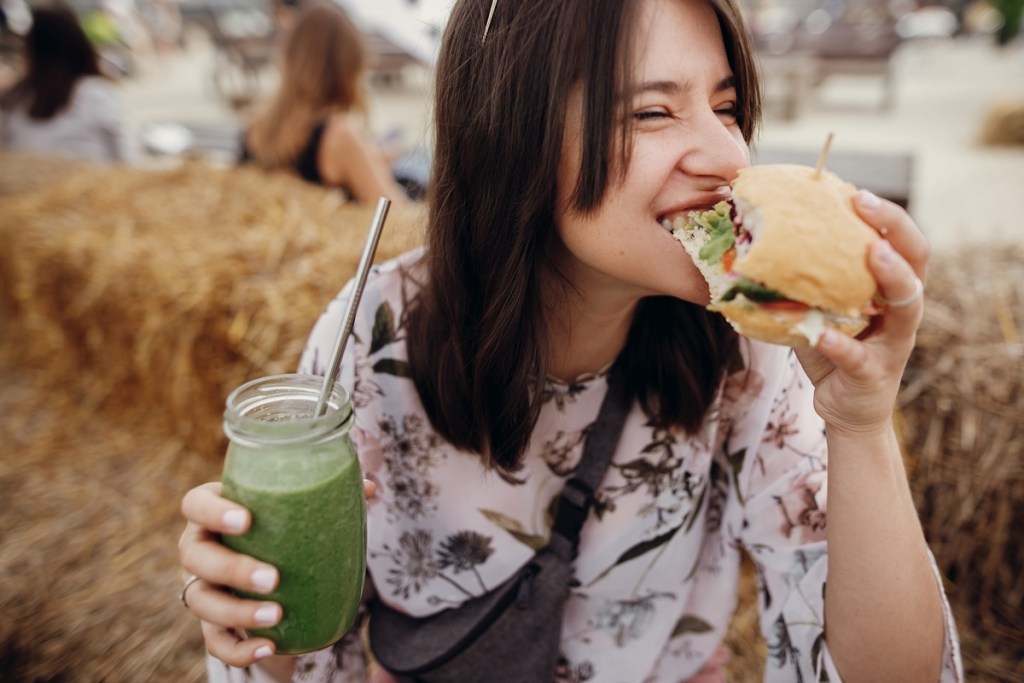
The American diet is undergoing a vegan revolution. One recent study found that plant-based food sales increased 27 percent in 2020. With vegan options more widespread (and tastier) than ever, it’s much easier to go vegan than it was even a few short years ago.
There are, however, a few things to be aware of before making the leap. While a plant-based diet has been shown to provide a range of health benefits, it also can create a shortage of essential nutrients that we take for granted in animal-based food sources. The good news is that there are ways to add these nutrients into a vegan diet — it just takes a little planning and preparation.
Here are the basics you should be aware of before you embark on your vegan journey.
The health benefits are substantial
While there are a few things vegans need to be aware of, the diet is overwhelmingly beneficial and endorsed by scientists and doctors around the world.
According to one large analysis of scientific literature on the subject, the benefits of a vegan diet include:
– Lower risk of death from heart disease
– Weight loss
– Lower blood pressure
– Better blood sugar control
– Decreased “bad” cholesterol levels
The study also found that people with chronic diseases saw a reduced need for medications if they went on a plant-based diet. This finding led study authors to conclude that “physicians should consider recommending a plant-based diet to all their patients, especially those with high blood pressure, diabetes, cardiovascular disease, or obesity.”
So the next time someone points to an isolated health issue that has been known to arise from veganism, just remember that, according to considerable scientific research, the benefits far outweigh the risks.

Getting enough protein
Recommendations vary when it comes to daily protein requirements. They can range from 0.36 grams for every pound of body weight (so about 65 grams per day for a 180-pound man) up to one full gram per pound.
The story goes that animal-based protein sources are best. In fairness, there’s no question that meat does pack protein. The average chicken breast contains 43 grams of protein, an eight-ounce steak contains 56 grams, and a tuna fillet contains about 43 grams.
But that doesn’t mean vegans can’t get their protein — far from it. You just have to know where to look.
Some of the best plant-based protein sources include:
– Soy: there are plenty of soy products on the market, and all of them are good protein sources. For instance, an eight-ounce glass of soy milk contains eight grams of protein (the same as dairy milk), while a cup of tofu delivers 20 grams.
– Plant meat: new versions of plant meat taste more and more like traditional meats all the time. They also pack plenty of protein, with the average four-ounce plant burger packing about 20 grams of protein.
– Nuts: Delicious and highly nutritious, nuts can be a vegan’s best friend. The humble peanut brings 38 grams of protein per cup, with almonds bringing 30 grams.

How to get more vitamin B12
This important micronutrient supports a healthy nervous system and is necessary to red blood cell and even DNA production. Not enough can increase the risk of heart disease or complications in pregnant women.
Vitamin B12 is plentiful in animal products, thus isn’t a problem for traditional Western diets. But it’s a little trickier for vegans, as plants are not a reliable source of this important vitamin.
If you’re concerned about your vitamin B12 intake but want to stick to a vegan diet, the good news is there are readily available sources. The goal is to get about 10 micrograms of vitamin B12 per day.
Good plant-based sources of vitamin B12 include:
– Multivitamin or vitamin B12 supplement
– Specially fortified plant milks and breakfast cereals
– Tempeh, a fermented soy product often used to make foods like plant-based bacon
– Nori, the dried seaweed product commonly used to wrap sushi
Ramping up your vitamin D
As with vitamin B12, this vitamin is more common in animal sources than plant sources. But again, there are plenty of ways for the conscientious vegan to make up the gap.
According to the National Institutes of Health, the average adult should shoot for 400 to 800 IU (or 10 to 20 micrograms) of vitamin D each day.
Plant-based vitamin D sources include:
– Vitamin D supplements
– Fortified plant milks and breakfast cereals
– Mushrooms
Going vegan is much easier than it used to be, thanks to a proliferation of products that are far more advanced and available than existed in the past.
Although there are adjustments vegans should make after switching over, that’s true of just about any diet. (After all, think of the deficiencies and problems you’d face if you cut out plants instead of animals.) Being a vegan is also better for the planet and for animals. So with these simple changes in mind, you can feel better inside and out once you switch to a plant-based way of life.
BlissMark provides information regarding health, wellness, and beauty. The information within this article is not intended to be medical advice. Before starting any diet or exercise routine, consult your physician. If you don’t have a primary care physician, the United States Health & Human Services department has a free online tool that can help you locate a clinic in your area. We are not medical professionals, have not verified or vetted any programs, and in no way intend our content to be anything more than informative and inspiring.



